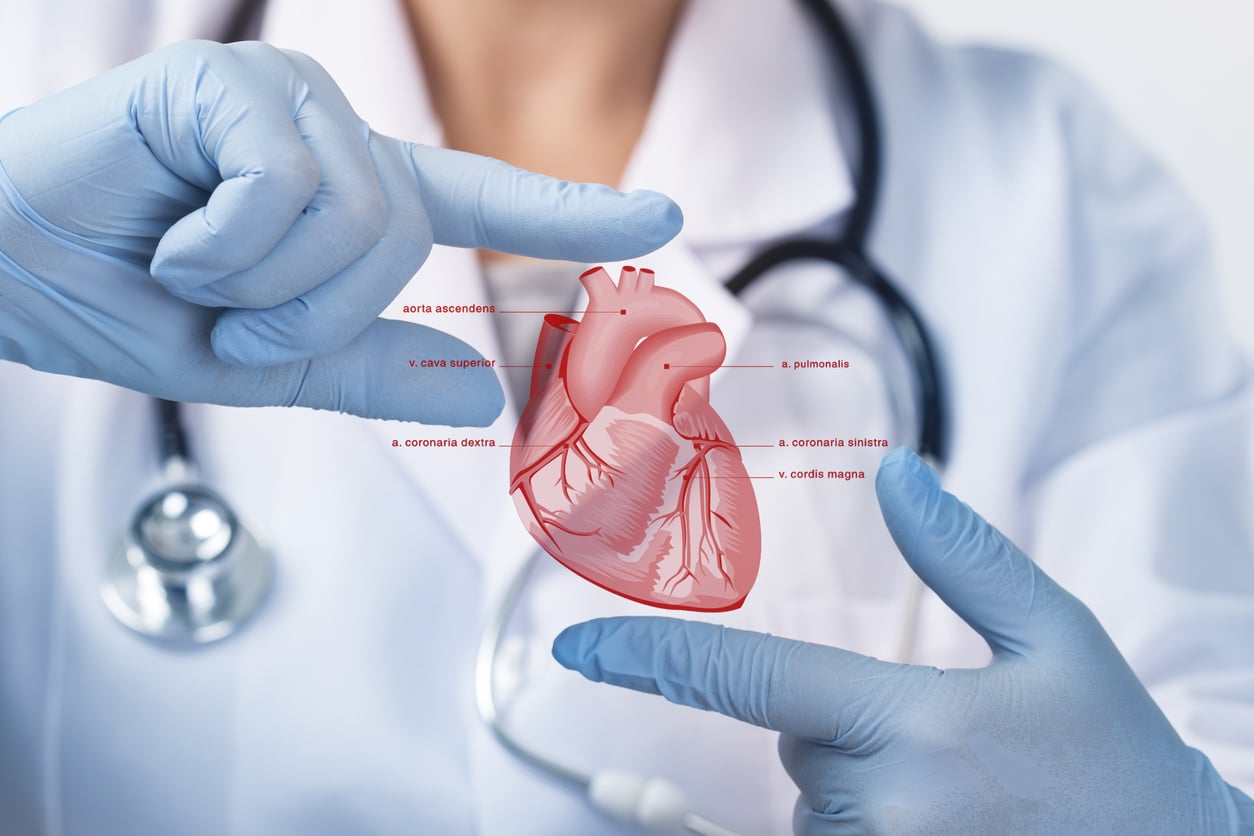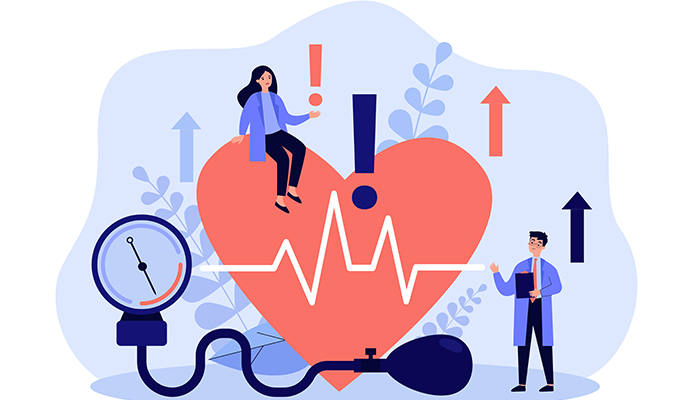What to do after your Cardiologist near me appointment
What to do after your Cardiologist near me appointment
Blog Article
Recognizing the Significance of Cardiology in Modern Health Care Providers
Cardiology plays an important function in modern health care, specifically as heart illness continues to be the leading source of death worldwide. Advancements in diagnostics and treatment have actually changed person treatment, allowing earlier interventions and enhanced outcomes. The change in the direction of precautionary cardiology equips people to manage their health and wellness proactively. As technology continues to progress, the integration of ingenious options may further redefine cardiology's influence on public health, triggering a more detailed assessment of emerging fads and their ramifications.
The Prevalence of Heart Disease and Its Influence On Public Health
Heart disease continues to be the leading cause of fatality worldwide, its effect expands much past private clients to affect public wellness systems and economic situations. The high prevalence of heart problem places a substantial strain on medical care resources, demanding enhanced financing for recovery, prevention, and treatment programs. Public wellness campaigns should deal with danger factors such as excessive weight, smoking, and inactive way of lives, which add substantially to the rising occurrence of heart conditions.Moreover, the economic problem connected with heart disease is immense, incorporating not just straight clinical costs yet likewise indirect expenditures connected to lost efficiency and early death. Areas encounter challenges in managing these costs, commonly bring about differences in medical care access and outcomes. As the populace ages and lifestyle-related dangers continue to intensify, the necessity for reliable cardiology treatments becomes extremely important. Attending to heart illness is not only an issue of specific wellness yet likewise a crucial public wellness priority.
Advancements in Heart Diagnostics and Imaging Techniques
Current improvements in heart diagnostics and imaging strategies have actually reinvented the field of cardiology, enhancing the ability to keep track of and find heart illness. Strategies such as heart MRI, CT angiography, and echocardiography have actually ended up being significantly sophisticated, offering comprehensive pictures of heart frameworks and features. These techniques permit the very early recognition of conditions like coronary artery condition, heart failure, and valvular disorders.Moreover, improvements in non-invasive diagnostics, such as wearable modern technology and remote surveillance tools, have actually encouraged people and medical care suppliers. These devices assist in real-time tracking of heart rhythms and various other crucial indications, resulting in prompt interventions. Furthermore, artificial intelligence is being incorporated right into imaging analysis, enhancing accuracy and performance in diagnosis.
Innovations in Therapy Options for Heart Issues
Recent advancements in cardiology have actually resulted in significant advancements in treatment choices for heart disease. These consist of innovative surgical methods that enhance procedural end results and emerging drugs that offer brand-new opportunities for treatment. As the field progresses, these innovations play a crucial role in enhancing person treatment and outcomes.
Advanced Surgical Techniques
Advancements in medical techniques have actually changed the landscape of cardiology, offering new hope for clients with heart disease. Minimally invasive procedures, such as catheter-based treatments, have actually greatly minimized recuperation times and health center stays. Methods like robotic-assisted surgical procedure boost precision, allowing specialists to navigate complicated physiological structures with greater accuracy. Moreover, innovations in imaging technology help with real-time visualization throughout procedures, boosting end results. Transcatheter aortic shutoff substitute (TAVR) exhibits a development in dealing with aortic constriction, enabling valve replacement without open-heart surgical treatment. Furthermore, hybrid techniques that integrate surgical and catheter-based methods give customized remedies for numerous heart problems. These sophisticated surgical techniques not only improve client safety but also increase therapy choices, highlighting the essential duty of technology in contemporary cardiology methods.
Emerging Therapies and medicines
As the landscape of cardiology remains to develop, emerging therapies and drugs play a crucial function in improving treatment alternatives for heart disease. Advancements such as novel anticoagulants and progressed lipid-lowering agents have changed the monitoring of cardiovascular diseases, considerably reducing client morbidity and mortality. Furthermore, the development of genetics therapies and regenerative medicine provides appealing avenues for treating conditions previously deemed permanent. Professional tests are continually disclosing the effectiveness of these therapies, pushing the limits of traditional treatments. In addition, the integration of electronic health modern technologies promotes personalized medication, permitting customized treatment strategies based on hereditary and lifestyle aspects. Jointly, these advancements underscore the dynamic nature of cardiology, boosting patient end results and redefining criteria of treatment in modern health care.
The Function of Preventive Cardiology in Client Treatment
Preventative cardiology plays a crucial role in patient care by concentrating on the recognition of threat aspects that add to cardiovascular disease. Through lifestyle adjustment techniques and early detection strategies, doctor can successfully minimize the incidence of cardiovascular events - Cardiologist near me. This positive technique not just boosts client results however likewise promotes long-lasting health and wellness
Risk Variable Recognition
While cardiovascular diseases remain a leading reason for morbidity and mortality worldwide, reliable danger variable identification functions as a foundation of preventative cardiology. Determining threat variables such as high blood pressure, hyperlipidemia, diabetes mellitus, and household history is crucial for very early treatment. Healthcare specialists utilize different screening methods to evaluate these elements, permitting tailored safety nets. Additionally, recognizing a patient's way of life choices, such as smoking and physical lack of exercise, better informs risk evaluations. This comprehensive assessment enables clinicians to establish tailored treatment strategies targeted at mitigating threats. By prioritizing threat variable identification, health care systems can improve person end results and lower the total worry of cardio illness, eventually adding to enhanced public health strategies and source allowance.
Way Of Life Alteration Approaches
A wide range of research studies highlights the vital duty of way of living alteration approaches in lowering heart disease risk. These techniques encompass nutritional modifications, enhanced exercise, cigarette smoking cessation, and weight management. By embracing a heart-healthy diet plan abundant in fruits, veggies, entire grains, and lean healthy proteins, individuals can lower cholesterol degrees and high blood pressure. Regular exercise reinforces the heart and improves general cardio wellness. Additionally, quitting cigarette smoking substantially minimizes the danger of heart illness and boosts recovery rates for those with existing conditions. Weight management further adds to cardio wellness by minimizing various other threat aspects such as diabetes mellitus and high blood pressure. Carrying out these way of living transforms not just advertises private well-being but also works as a keystone of preventative cardiology in person treatment.
Early Detection Strategies
Way of living adjustments considerably contribute to reducing heart disease dangers, but they are most reliable when coupled with very early detection strategies. Preventive cardiology stresses the relevance of identifying potential heart concerns before they escalate right into significant problems. Techniques such as blood pressure tracking, cholesterol screening, and advanced imaging modern technologies like echocardiograms play important functions in evaluating cardio learn the facts here now health and wellness. Biomarkers and hereditary testing also boost the precision of early detection, permitting customized preventive approaches. Routine heart danger evaluations encourage health care service providers to interfere proactively, potentially protecting against cardiovascular disease and strokes (Cardiology Jupiter). By incorporating these early detection techniques into regular care, individuals can take advantage of timely way of living interventions and targeted therapies, ultimately boosting outcomes and improving lifestyle
Integrating Innovation Into Cardiology Practices
As innovations in technology proceed to improve various fields, the assimilation of innovative tools and systems into cardiology methods has actually become necessary for boosting patient treatment and end results. Telemedicine platforms permit cardiologists to keep an eye on people remotely, enhancing accessibility to care while reducing the concern on health care centers. Wearable tools, such as smartwatches, make it possible for constant heart price surveillance, alerting both doctors and individuals to prospective problems in real-time. In addition, man-made knowledge (AI) is being used to examine huge quantities of heart information, helping in very early medical diagnosis and tailored therapy strategies. Advanced imaging methods, consisting of 3D echocardiography, improve visualization of heart structures, resulting in much more precise interventions. Electronic health documents (EHRs) simplify individual info administration, guaranteeing that cardiologists have instant access to essential data. With each other, these technical improvements are transforming cardiology, promoting aggressive monitoring and boosted health and wellness outcomes for patients with cardio problems.
The Value of Individual Education and Involvement
Individual education and involvement play a critical role in the monitoring of cardiovascular health. By furnishing patients with expertise about their problems, treatment choices, and way of living modifications, healthcare carriers equip people to take an active function in their treatment. This proactive technique can lead to enhanced adherence to prescribed medicines, dietary adjustments, and exercise programs, inevitably reducing the danger of complications.Engagement site here additionally fosters a strong patient-provider partnership, encouraging open communication and depend on. When people feel informed and included, they are more probable to voice concerns and ask questions, which can cause far better clinical outcomes. Furthermore, academic sources, such as workshops or electronic systems, can enhance understanding and promote self-management methods. Generally, focusing on person education and engagement is vital for improving cardiovascular wellness, boosting top quality of life, and lowering healthcare costs connected with heart diseases.
Future Trends in Cardiology and Their Potential Impact

Regularly Asked Concerns
What Way Of Life Changes Can Decrease Heart Problem Risk?
The present inquiry addresses way of life modifications that can greatly minimize heart disease risk. Dr Garcia. Adopting a well balanced diet, engaging in normal physical activity, keeping a healthy and balanced weight, handling anxiety, and staying clear of cigarette can significantly improve cardiovascular health and wellness
Just How Can I Recognize Early Signs of Heart Problems?
Identifying very early indicators of heart troubles entails tracking symptoms such as breast discomfort, lack of breath, exhaustion, and uneven heartbeat. Timely understanding of these signs can trigger necessary clinical evaluation and treatment for much better end results.
What Are the Distinctions In Between Cardiologists and Cardiac Surgeons?
The distinctions between cardiologists and cardiac specialists depend on their functions; cardiologists largely take care of and diagnose heart disease via non-invasive approaches, while cardiac doctors perform surgeries to fix architectural heart concerns. Each plays an essential, distinct function.

Just how Often Should I Obtain My Heart Wellness Checked?
The regularity of heart medical examination varies based on specific threat aspects. Normally, grownups must go through assessments every one to 2 years, while those with status quo might need more frequent analyses as encouraged by health care experts.
What Role Does Genes Play in Heart Illness Risk?
Genes considerably influences heart problem danger, with familial patterns showing inherited problems. Details genetics can predispose people to hypertension, cholesterol concerns, and other cardio issues, highlighting the importance of hereditary screening in reviewing heart health and wellness. Heart condition continues to be the leading cause of fatality around the world, its effect extends much past private people to impact public wellness systems and economies. Public wellness initiatives need to address threat factors such as weight problems, smoking, and inactive way of livings, which contribute considerably to the rising occurrence of heart conditions.Moreover, the financial concern linked with heart disease is enormous, incorporating not only direct clinical prices but likewise indirect expenditures related to lost performance and early mortality. Precautionary cardiology plays a crucial role in client treatment by concentrating on the identification of risk elements that add to heart condition. Artificial intelligence (AI) and maker understanding are enhancing diagnostics and patient tracking, allowing very early discovery of heart conditions. The distinctions between cardiologists and cardiac cosmetic surgeons lie in their functions; cardiologists mostly detect and take care of heart conditions through non-invasive methods, while cardiac cosmetic surgeons carry out surgical treatments to remedy architectural heart issues.
Report this page